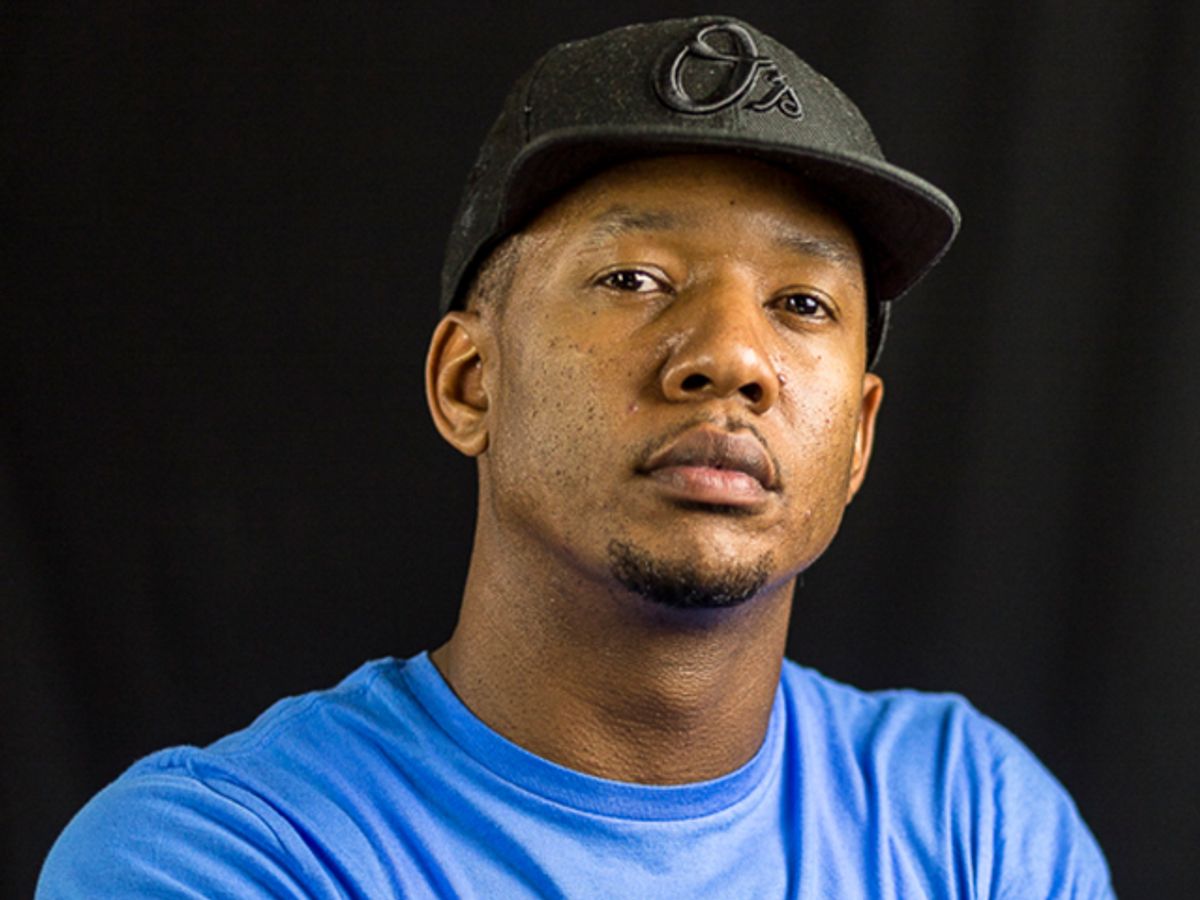I remember laughing at my friend Nick. For hours we’d sit at the kitchen table, separated by a bottle of Belvedere vodka, taking shots and telling stories and being 20. His claim to fame was having an indestructible skull. One time at the table, he bragged, “Yo, D., my head is made of stone,” he said, pressing the edges of his forehead with his index finger. “Nothing can damage it!”
“Yeah, OK.” I replied.
He started beating his head on the table, repeating “it's impossible, impossible!”
I took a swig. “Yo, that table is Ikea plastic! I’m not impressed!”
Nick took his show from the table to the brick wall in the living room and beat his head until blood surfaced.
“OK, Nick, I get it!” I yelled with a laugh. I tackled him. “That’s a enough, man. Yuck, you all bloody!”
Nick suffered from mental illness, and we didn’t know it. It’s not that we ignored the signs; it’s just that many people living in poor black neighborhoods don’t acknowledge mental illness as a real thing. Being zapped or crazy is a badge of honor. Who wants to be regular? We are from a place where a person who participates in the most dangerous acts is deemed the one with the most heart.
And we all saw homicides, shootings, flesh chunks, blood pools and 10-minute beatings that seemed to go on for hours, along with everything else guaranteed to be seen in poverty towns. The signs are clear, but a culture of treatment didn’t exist until recently.
A new wave of fitness experts and community activists are successfully battling issues around mental health and offering knowledge in combination with real solutions to handling these problems. One of those leaders is Quentin Vennie. He stopped by Salon the other day to talk about his new memoir, "Strong in the Broken Places: A Memoir of Addiction and Redemption Through Wellness."
Quentin Vennie has a beautiful soul. He’s calm, passionate about wellness, creates amazing juices and has a beautiful family. From the outside looking in, one would swear that he has never had any issues in life, but that person would be very wrong.
Vennie grew up in my hometown of Baltimore, one of the most dangerous cities in the country, during the height of the crack era. Every issue you could peg on a child at that time — being from a broken home, having an addicted parent, losing friends to the streets — Vinnie has seen it or experienced it. And like most who suffer from those types of trauma, Vennie became extremely depressed as he followed his peers and entered a world of dealing, drinking and drugging.
Selling drugs wasn’t for Vennie as he quickly realized. “I got out of the streets when my son was born, because I didn’t want my child to go through with I went through. I knew what it was like to grow up without a father.” The birth of his son forced him to choose to choose life. Vennie was able to get out of the game; at age 26 he still battled the demons related to his upbringing, however.
Vennie was eventually diagnosed with severe generalized anxiety and panic disorder and mild to severe depression disorder. Doctors supplied him with pills that led to two years of prescription drug abuse, an accidental overdose and multiple suicide attempts.
“It was after that second suicide attempt when I came to the realization that my life had value,” Vennie told me. “That was my come-to-Jesus moment. I saw that even when left [to] my own devices, I couldn’t kill myself, right, so obviously I’m here for a reason.”
Vennie dumped his doctor whom he deemed unhelpful and started doing research on alternative medicines. He found the answers to all his problems in yoga and pursuit of health and wellness. All of these stories are documented in "Strong in the Broken Places."
My friend Nick wasn’t as lucky: He was murdered before any of us could really help him with his issues. But I like to think that Vennie’s journey and teachings could have saved Nick's life.
Watch my interview with Vennie to learn about his turning point and how he plans to share his message of wellness with young people in our inner cites, starting at home in Baltimore. Believe me, with more than 150 murders before the summer even starts, we need it.



Shares